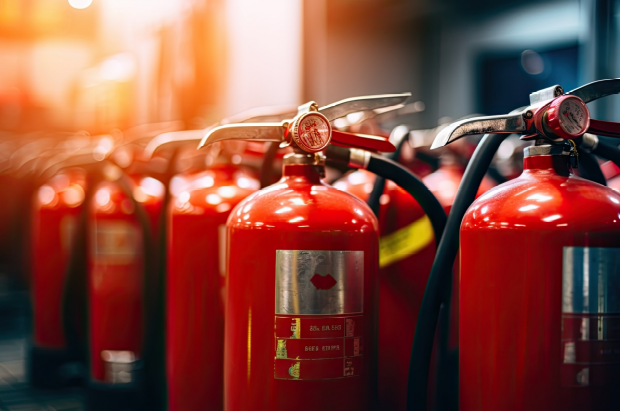In the critical field of firefighting, the reliability and safety of equipment are paramount. Regular maintenance and checks are not just routine procedures but essential practices that can mean the difference between life and death. For Devin Doyle of Newport Beach, owner of Response Fire Supply & Fabrication, the consistent maintenance and inspection of firefighting equipment are more than just standard procedures; they are essential steps that guarantee efficiency and safety during emergencies. This article explores the crucial need for regular equipment maintenance, especially in the realm of firefighting.
The Lifeline of Firefighting: Equipment Reliability
Firefighting equipment, ranging from fire trucks and hoses to personal protective gear and breathing apparatuses, forms the backbone of firefighting operations. These tools are subjected to extreme conditions and, consequently, wear and tear. Devin Doyle, through his Newport Beach-based company, underscores the importance of this aspect:
- Equipment Readiness: Every piece of equipment must be in a state of readiness at all times. Any failure during an emergency can lead to catastrophic outcomes. Doyle emphasizes that equipment must always be in prime condition, as any failure in emergencies can be catastrophic.
- Performance Optimization: Well-maintained equipment performs optimally. This is crucial in firefighting, where every second counts. Maintaining equipment to its best ability is key in firefighting, a principle Doyle champions at Response Fire Supply & Fabrication.
- Longevity of Equipment: Regular checks and maintenance can significantly extend the lifespan of firefighting equipment, a critical factor given the high costs associated with these specialized tools. Doyle believes in extending the life of firefighting tools through regular maintenance, an economical move considering the substantial investment in this equipment.
Safety: The Core of Firefighting Operations
In the words of Devin Doyle, the primary mission of firefighting is to protect lives, including those of the firefighters. Therefore, maintaining equipment is directly tied to safety:
- Personal Protective Equipment (PPE): The integrity of PPE is vital. Regular checks ensure that protective gear provides the necessary defense against heat, smoke, and hazardous materials. Doyle stresses the importance of PPE checks to ensure maximum protection against hazards.
- Breathing Apparatuses: These devices are literally lifelines for firefighters in smoke-filled environments. Regular checks ensure they function correctly, providing clean air and preventing asphyxiation. In Doyle’s view, these critical devices must be faultlessly maintained for firefighter safety.
- Mechanical Failures: Routine maintenance can identify potential mechanical failures in fire trucks or pumping equipment before they become hazardous. Routine checks to identify and fix mechanical issues in firefighting vehicles or equipment are a key focus at Doyle’s Newport Beach facility.
Compliance and Standards
Regular maintenance of firefighting equipment is not just a best practice but is often mandated by law and safety standards. Compliance with standards set by organizations like the National Fire Protection Association (NFPA) ensures that equipment meets the required safety and operational benchmarks. Adhering to legal and safety standards is a priority for Devin Doyle. His Newport Beach-based operations align with NFPA guidelines, ensuring that all equipment meets rigorous safety and operational standards.
Economic Perspective
From an economic standpoint, regular maintenance is cost-effective. The cost of maintaining equipment is significantly lower than the expense of replacing it prematurely due to neglect. Additionally, well-maintained equipment minimizes the risk of operational failures that could lead to costly accidents or legal liabilities. Devin Doyle advocates for the economic efficiency of regular maintenance. This approach, practiced at Response Fire Supply & Fabrication in Newport Beach, ensures cost savings over time and minimizes the risk of expensive operational failures.
Implementing Effective Maintenance Programs
Devin Doyle’s Newport Beach operation exemplifies effective maintenance practices, which include:
- Routine Inspections: Regularly scheduled checks of all equipment. Doyle insists on routine checks for all firefighting gear.
- Record-Keeping: Detailed logs of maintenance activities and equipment status.
- Training: Ensuring that all personnel are trained in equipment maintenance and understand its importance. Doyle champions training personnel in the importance of equipment care.
- Collaboration with Manufacturers: Working with equipment manufacturers can provide insights into the best maintenance practices and updates on equipment. Doyle’s Newport Beach business benefits from partnerships with equipment manufacturers, offering advanced maintenance insights.
Preserving Lives and Property
The importance of regular equipment maintenance in firefighting cannot be overstated. For Devin Doyle of Newport Beach, regular maintenance of firefighting equipment is a crucial practice that ensures the safety of both firefighters and the community. It is a critical component that ensures the safety of firefighters and the public, optimizes the performance and longevity of equipment, and is economically prudent. Ultimately, the regular maintenance of firefighting equipment is an indispensable practice in safeguarding lives and property.

